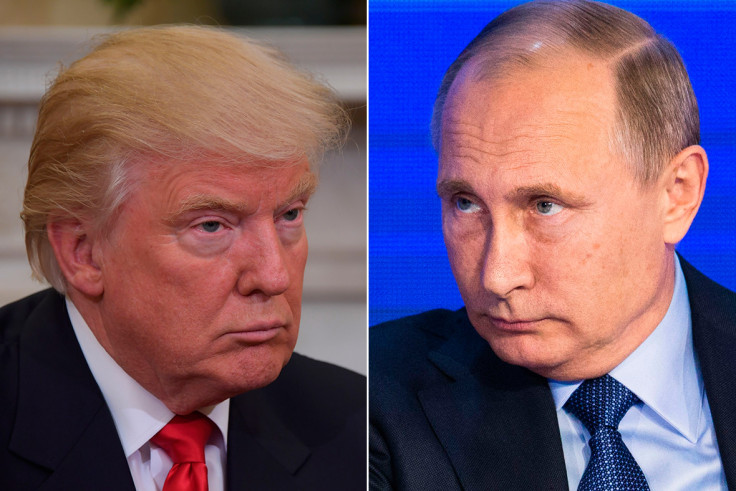Donald Trump rejects evidence Vladimir Putin was personally involved in US election hacking
The president-elect's team said it was part of a continued effort to disrupt election result.

President-elect Donald Trump has dismissed the consensus from US intelligence agencies that Russia was responsible for hacking during the US election.
It was revealed on 14 December that Russian president Vladimir Putin had been personally involved in the hack, with two senior officials with direct access to intelligence information telling NBC News Putin organised how material taken from the Democrats was used and leaked.
However, in a tweet on 15 December, Trump wrote: "If Russia, or some other entity, was hacking, why did the White House wait so long to act? Why did they only complain after Hillary lost?"
Speaking on a conference call with the media, Trump's transition team described discussion around the hack as part of "continued efforts to delegitimize" the election, adding "at certain point you've got to realise the election from last month is going to stand".
However, the president-elect is facing calls to give a further statement on the matter, given all 17 US intelligence agencies signed a statement in October claiming Russia was responsible for hacking the Democratic National Committee.
And Trump has also faced accusation from the White House that he was well aware the hacking was coming from Russia.
If Russia, or some other entity, was hacking, why did the White House wait so long to act? Why did they only complain after Hillary lost?
— Donald J. Trump (@realDonaldTrump) December 15, 2016
"There's ample evidence that was known long before the election and in most cases long before October about the Trump campaign and Russia — everything from the Republican nominee himself calling on Russia to hack his opponent," White House spokesman Josh Earnest told The Independent.
"It might be an indication that he was obviously aware and concluded, based on whatever facts or sources he had available to him, that Russia was involved and their involvement was having a negative impact on his opponent's campaign."
The hacking reportedly began as a "vendetta" against Hillary Clinton, a high-level intelligence source told NBC News. It then developed into an effort to show corruption within the US political system as well as an effort to "split off key American allies by creating the image that [other countries] couldn't depend on the US to be a credible global leader anymore", the official added.
© Copyright IBTimes 2025. All rights reserved.




















